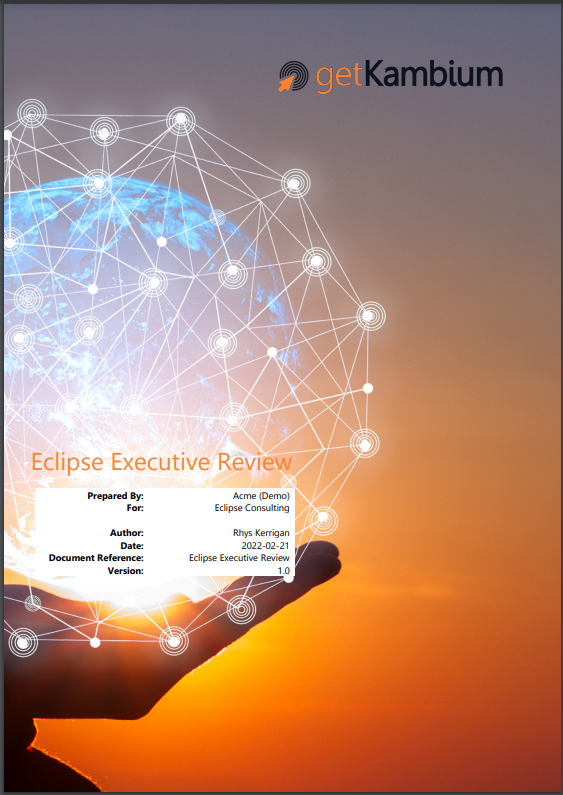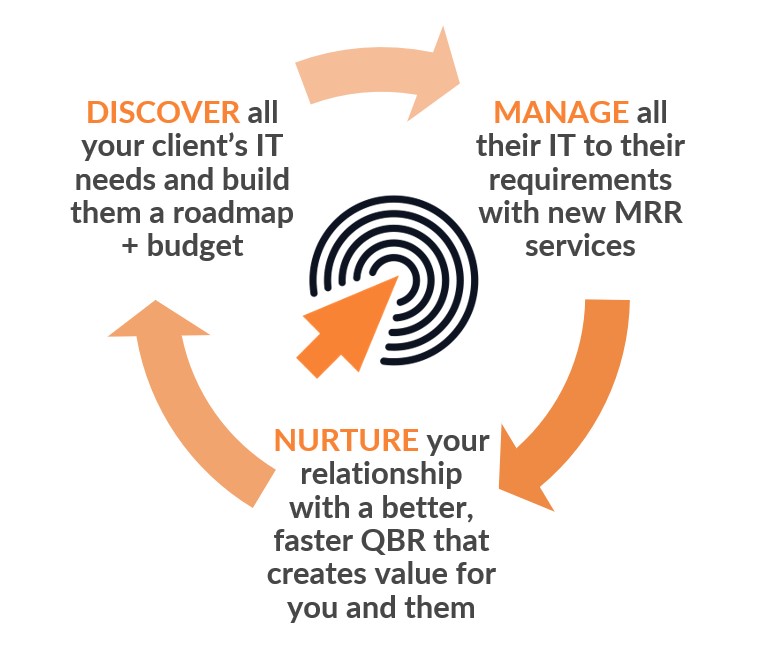Not all MSPs should getKambium.
getKambium is ONLY right for those MSPs that are thinking about the future and want to be more strategically aligned to their clients. We know that not all MSPs are on the same page. They are still busy enough supporting users, managing tickets, and adding MSSP services.
Some MSPs are looking further out. Is that your MSP?
We’ve prepared a few questions that help frame the conversation.
1. What do you understand “professional services” to be?
Depending on various methodologies that you might have encountered in the MSP community, “Professional Services” may mean vastly different things to different MSPs. For some MSPs, it might mean consulting and design of Infrastructure, and the projects to deploy those designs. For other MSPs, it might mean vCIO, and that can range wildly in what it includes.
What do you think your clients need from your professional services capability? Is it governance and advice across all their IT, including services that your MSP does not provide. If so, then you will be looking for a clear scope of work, just as you do with your engineering and support agreements, and a way to scale them out across multiple consultants in your business consistently.
2. What does trusted advisor mean to you?
Does your client automatically ask you for advice on all their IT questions and initiatives, including the ones that fall outside the scope of your MSP engagement? Are you their ‘go-to’ person sharing your wide experience with your customers? If they are asking you every time, then congratulations because you have achieved a special level of trust.
On the other hand, if your level of advice is limited to the scope of your MSP engagement, and the client takes advice from a wider range of consultants, then you have a huge opportunity to address that.
Ask yourself – what does your client look to you for leadership on? How many of these can you tick off?
- Advising clients on equipment lifecycles
- Advising clients on cyber-security
- Helping clients source new software to run their business
- Helping clients set up CRM, HRIS and other tools
- Helping clients train their users
- Helping clients explore process automation
- Helping clients explore data analytics
- All the above
3. Do you do QBRs now and what are your goals for a successful QBR?
It can be hard to set aside the time to always do QBRs for your most important clients, let alone all of them. Matters arise, time is tight, and sometimes it’s even hard just to book a time with your client.
Pulling the information together for a QBR can also be time consuming. Downloading reports from all the tools you use for a client can be considerable, but you do it because you want to show them the value that you provide.
Doing a QBR to show value is a great idea, but will that make your meeting an effective use of your time, or your client’s time. Do your QBRs have a defined set of objectives?
4. Do you know what your client’s goals for a successful QBR are?
Too often, an MSP designs a QBR to show what they think a client should see. Unfortunately, that can become a little transactional.
Does your client really want a conversation with you about SLAs, or a discussion about which old devices need to be replaced? While those are important topics, they aren’t enough. We think most clients want to talk about their business, their priorities, and what they need you to do to support your client to achieve their strategic goals.
5. Do you have a formal or informal process to discover your clients’ priorities?
To support your client achieve their strategic goals, you need to know what they are. You need to understand their priorities and align your initiatives to meet those goals?
A good MSP will pick up some of this information informally, through their various interactions A great MSP will have a system to collect it more formally, asking the right questions to ensure they are fully in the picture. Just as MSPs perform technical audits to understand their new client’s infrastructure, they need a similar process to understand their business needs.
6. Is it more important for a QBR to analyze the past service performance or is it more important to check back against their business priorities
Once you know your client’s strategic goals, how do you check in with them to ensure they are haven’t changed. If your MSP business has dynamic goals that require regular review, then you can expect your client to have a similar need to review and reassess their priorities. If your understanding of your client is based on anecdotal information and experience, then its likely you will be disconnected from their most current planning.
An annual process to formally explore the client’s priorities and relate those to their expectations of your services, is great start. You can also extend their expectations of your services, because is their prior experience of your MSP is limited to a subset of your value proposition, then you will have capabilities that your client isn’t aware of, and they may well be looking to others to provide services you can offer.
A thorough, structured QBR gives you the opportunity to reconnect with your client and reaffirm your understanding remains robust, and to pick up any changes that may have occurred as your client evolves their strategic priorities to meet their evolving needs.
Will your MSPs be focused on talking about last quarters SLAs, or will you spend more QBR time planning the quarter(s) ahead and developing your sales pipeline? You need to do a little of the former, while allowing time for the latter.
7. Do you have client opportunities that stall for extended timeframes awaiting their approval?
Every MSP we have spent time with, including our own MSP, has stalled opportunities in their sales pipeline. There are potential revenue opportunities that simply do not progress. The experienced sales managers reading this will remind us of the need for these opportunities to be better qualified, and the challenge is to find a way to make that happen more easily.
We see QBRs as a fantastic opportunity to review open opportunities and compare them to the client’s strategic priorities. If they match, then the business should be able to be closed more quickly. If it cannot be, then may be the opportunity is overly optimistic.
If you found yourself nodding along as you read this, and thinking there must be systematic way to achieve these, then getKambium is for you. On the other hand, if you found yourself disagreeing with us, then we wish you all the best of luck.
GetKambium has been put together for MSPs who want to get strategic with their clients, to talk about their business, to develop plans to achieve their goals, and to execute those plans. If that’s your vision for your MSP, then let’s talk!


